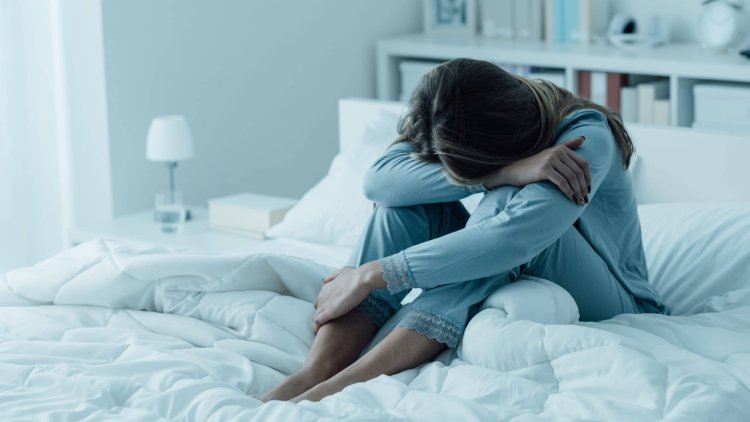Everything is good but you feel depressed?
Contrary to the belief that something bad must happen in our lives to drown in depression, it can overwhelm us and when we are in good relations.

If you suffer from depression or suddenly experience bouts of sadness that seems to come from nowhere, you are probably wondering why this is happening. According to the World Health Organization, more than 264 million people were diagnosed with depression. Contrary to the belief that something bad must happen in our lives to drown in depression, it can overwhelm us even when we are financially secure, on good terms, getting along well with the family, happy with work, leading as normal a life as possible.
Why are we actually depressed and good at life?
Causes of depression
Clearly, some life situations or, for example, a current pandemic are major triggers of depression. A sample of the Chinese population found that more than 50 percent of respondents in the corona pandemic have symptoms of anxiety and depression. In addition, there are frequent complaints of impaired concentration, attention, memory, irritability, insomnia or increased need for sleep, disorganization, and somatic symptoms such as headache and other pain syndromes, loss of appetite with weight loss/gain. In the background of these symptoms is anxiety related to facing the danger of infection and lifestyle changes and functioning imposed by the crown.
When faced with a particular life challenge or change, such as job loss, geographical relocation, or family and financial stress, these situations can cause you to fall into temporary or long-term depression.
Depression caused by someone's environment is more related to those with whom you may have grown up, family, or home environment. Regardless of your biological predisposition, learn how to deal with life’s challenges by observing those around you. Adults, and especially parents/guardians, are role models for children.
In some cases, depression can be a combination of all of the above.
Symptoms of depression
Depression is a mood disorder characterized by feelings of sadness, guilt, worthlessness, hopelessness, irritability, and in the worst cases, despair and suicidality.
In clinical practice, it is classified into several categories, two of which are more common - major depression and dysthymia. According to the Diagnostic and Statistical Manual, which regulates the diagnosis of psychiatric and mental disorders, major depression is classified as experiencing five or more symptoms in the same two-week period and must include loss of pleasure as well as depressed mood most of the day, almost every day.
The criteria are:
- loss of pleasure or joy
- Intense feelings of sadness and depressed mood most of the day, almost every day
- difficulty sleeping
- increased or decreased appetite and weight change
- difficulty focusing, poor concentration
- psychomotor agitation or slowing down
- excessive fatigue
- feelings of worthlessness or guilt
- constant thoughts of death, dying and suicide
Dysthymia is one of the milder degrees of depression, in which crying and withdrawal from society, depression are most common, but there are no vegetative problems (stomach pain, palpitations). Dysthymia is a permanent or permanently depressed mood for a period of two years in which you feel sad for more days than not. Includes at least two of the following symptoms:
- poor appetite or overeating
- insomnia or excessive sleep
- low energy or fatigue
- low self-esteem
- poor concentration
- feeling hopeless

Examples of causes of depression
Sadness
The loss of a loved one, especially when it is sudden and traumatic, can cause an intense feeling of loss and sadness, which can lead to clinical depression. This includes the death of pets.
Illness
The diagnosis of the disease, especially if it is chronic and progressive, is similar to any other loss you may experience. It represents the loss of the life you have had.
A feeling of failure or perceived shortcomings
People who experience depression tend to be sensitive and self-critical. For example, you may not be progressing at work as you envisioned, but that doesn’t mean you’re not progressing in other areas of life.
Sudden life change
Changes - even good changes and welcome ones - are difficult. Sometimes these changes can affect your role and status in society, such as marriage or parenthood, which are both wonderful changes, but full of many challenges and new social roles.
Feeling trapped or limited
Having opportunities is both a blessing and a curse. We know that the more options we have, the less happy we are and the more anxious we are, that we want and need to make the right decision. However, on the other hand, the idea that you don’t have opportunities can also lead to feelings of being trapped and feeling that your life circumstances are already written in stone.
Burnout
Stress at work, overwork and underpaid work, or lack of fulfillment in your profession can lead to depression, which can also coincide with the feeling that you are trapped and as if you don’t have many opportunities in life and career.
Out of the blue
Sometimes it is also possible to feel depressed and not actually know the cause. It's as if you're in a depressed mood out of nowhere. But usually, when there is something like depression or anxiety - which are defense mechanisms - there is also something in your life that is not entirely in line with who you are and where you are going. That basically means it’s time to stop and reconsider a few things in life. This does not mean that you will be able to completely correct the lifeboat. However, you may be able to make some small changes that will help you gain a sense of more control over your life and the direction you are going.




























